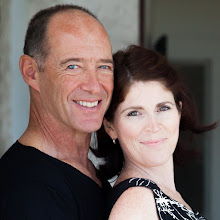The Five Love Languages or basic emotional languages, in no particular order, that we all have are:
1. Touch
2. Words of Affirmation
3. Quality Time
4. Acts of Service
5. Gifts
You can take a quiz to see what your predominant love languages are HERE or HERE
I took the quizzes and it seems my main language is quality time. I want to spend time with the people I care about and want to talk, and touch and actually focus on each other (and sitting watching TV doesn't really count as quality time in my books).
The first quiz's results for me are:
| Score | Love Language |
| 6 | Words of Affirmation |
| 11 | Quality Time |
| 1 | Receiving of Gifts |
| 6 | Acts of Service |
| 6 | Physical Touch |
So quality time really is a biggie for me. Note that the maximum score is 12...
Then the others are equally important to me - except gift giving, which I really don't value that much. I mean a gift is nice, of course, but often it's just a last minute obligation, or given to placate another need. I'd rather be, do or say, than just get. To me a gift is only meaningful when it comes along with one of the other languages. Is that just me?
My results of the second quiz are:
My Primary Love Language is Quality Time
| My Detailed Results: | |
|---|---|
| Quality Time: | 10 |
| Acts of Service: | 8 |
| Physical Touch: | 7 |
| Words of Affirmation: | 5 |
| Receiving Gifts: | 0 |
This one shows that my secondary language is Acts of Service, which is more in line with what I expected. I like to be offered help - even if I don't want or need it, it's the offer that is important to me. Or just spontaneously given help, without having to ask for it. And for someone to just come and be with me (oh wait that's quality time) while I am busy.
So what are yours?
Dr. Gary Chapman, Christian counselor and author of The Five Love Languages, writes about the importance of being able to express love to your spouse in a way that your spouse can understand. He calls this type of communicating using the five love languages.
Chapman's Five Emotional Love Languages:
- Words of Affirmation
This is when you say how nice your spouse looks, or how great the dinner tasted. These words will also build your mate's self image and confidence.
- Quality Time
Some spouses believe that being together, doing things together and focusing in on one another is the best way to show love. If this is your partner's love language, turn off the TV now and then and give one another some undivided attention.
- Gifts
It is universal in human cultures to give gifts.They don't have to be expensive to send a powerful message of love. Spouses who forget a birthday or anniversary or who never give gifts to someone who truly enjoys gift giving will find themselves with a spouse who feels neglected and unloved.
- Acts of Service
Discovering how you can best do something for your spouse will require time and creativity. These acts of service like vacuuming, hanging a bird feeder, planting a garden, etc., need to be done with joy in order to be perceived as a gift of love.
- Physical Touch
Sometimes just stroking your spouse's back, holding hands, or a peck on the cheek will fulfill this need.
Determining Your Own Love Language
Since you may be speaking what you need, you can discover your own love language by asking yourself these questions:
- How do I express love to others?
- What do I complain about the most?
- What do I request most often?
Speaking in your spouse's love language probably won't be natural for you. Dr. Chapman says, "We're not talking comfort. We're talking love. Love is something we do for someone else. So often couples love one another but they aren't connecting. They are sincere, but sincerity isn't enough."
Emotional Experiences
The number one emotional experience reported by folks is feeling the presence of God in their lives. The emotional high of being in love (which generally lasts around 2 years) is the second highest emotional experience that people reportedly have.That is why it can be so difficult to try and talk some sense into someone who is in the midst of falling in love. Chapman stated that obsessive love can render people mentally incompetent. "There's not much difference between being in love and being insane."
Fading Tingle and Empty Love Tanks
After the first or second year of marriage, when the initial "tingle" is starting to fade, many couples find that their "love tanks" are empty. They may have been expressing love for their spouse, but in reality they were speaking a different love language. The best way to fill your spouse's love tank is to express love in their love language. Each of us has a primary love language. Usually, couples don't have the same love language.
Tank Check
Dr. Chapman recommends that you have a "Tank Check" 3 nights a week for 3 weeks. Ask one another "How is your love tank tonight?" If, on a scale from zero to ten, it is less than 10, then ask "What can I do to help fill it?" Then do it to the best of your ability.


Jane: Mine was physical touch.
ReplyDeleteWhich I think is accurate, although completely absent in my life.